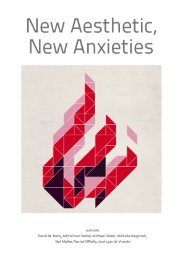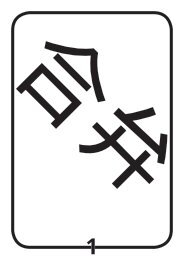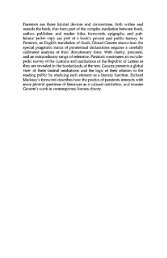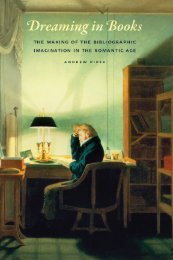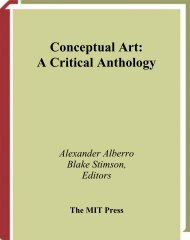You also want an ePaper? Increase the reach of your titles
YUMPU automatically turns print PDFs into web optimized ePapers that Google loves.
and space continuum which has been imposed on the ontological structure of<br />
art making, c) resists unnecessary staging of a reality which does not exist. [Tile<br />
gllost Ilas been sllifting around now ... we can hear him going on and on about works<br />
wllicll do not necessarily correlate to what the Docent has been speaking about.]<br />
[Tile Docent leads tile group over to the windows of untitled free, and crosses the<br />
hall into tile space of the f(iilnischer f(unstverein.] Docent: In nineteen ninety-six<br />
Tiravanija, having won the prize from the K6ln-based Central Insurance<br />
Company (which is comprised of a six month stay in the city of Cologne,<br />
Germany), was commissioned by the company to produce a work for an<br />
exhibition at the K6lnischer Kunstverein. What we are looking at is a structural<br />
replica in full scale of Tiravanija's apartment in New York. Tiravanija had lived in<br />
this apartment for almost twenty years up to that point. It is a four-flight walkup<br />
in a tenement building. The original apartment is very old. The apartment<br />
number is twenty-one, actually a lucky number for Tiravanija, as he was also<br />
born on the twenty-first day. The actual title of the exhibition is untitled in<br />
parenthesis tomorrow is another day. The phrase 'tomorrow is another day' came<br />
from the director of the Kunstverein himself, Udo Kittelmann - an utterance<br />
often used as an expression of relief and resignation. But for Tiravanija it was<br />
about the inevitability of daily life. tomorrow is another day was for Tiravanija a<br />
work where all his essential ideas came together. Tiravanija has often said that<br />
his work was 'about use, and through this use meaning is constructed'. Here we<br />
see the apartment which was opened for three months and was open twentyfour<br />
hours a day, six days a week (it would have been seven days but German<br />
labour laws prohibited the work being open on Sundays). This was perhaps the<br />
first and only time an exhibition space was left open with fuII access. For the<br />
three months it was open people came and stayed in the apartment; they<br />
cooked, they ate, they bathed (everything functioned in the apartment replica as<br />
in a normal habitat), they slept, got married, had birthdays, many, many<br />
performances of music and otherwise; the space surrounding the apartment<br />
became a garden. Many, many people spent a lot of time in and around the<br />
apartment, and they shared their time and space together. They drew and wrote<br />
notes, comments, drawings, young and old. It was an open house and, against<br />
expectations, nothing terrible happened. Tiravanija left K6ln soon after the<br />
apartment opened. He left everything he had brought (house-wares, TV, stereo,<br />
kitchenware ... etc.) for his stay at the residency ... nothing went missing and in<br />
fact people left more things behind, things of value and useful things. [Tile<br />
Docent takes the group through to the next and last space ... while walking the<br />
Docent continues with the dialogue ... ] Docent: Similarly to untitled in parenthesis<br />
tomorrow is another day ... now at this point you may have all noticed that<br />
Tiravanija//No Ghosts in the Wall// ISI



